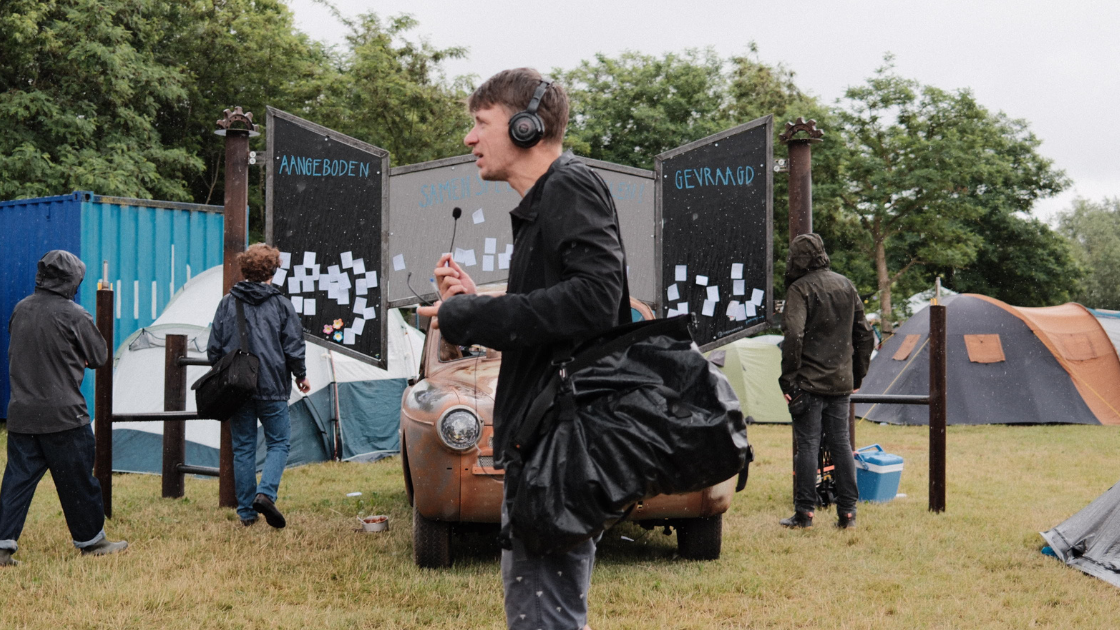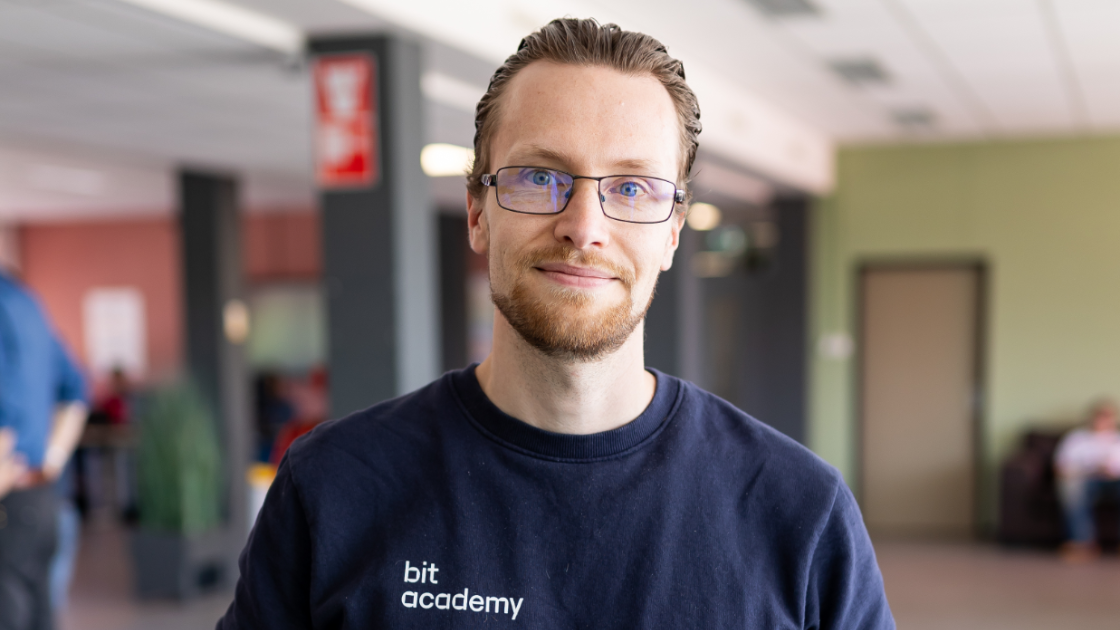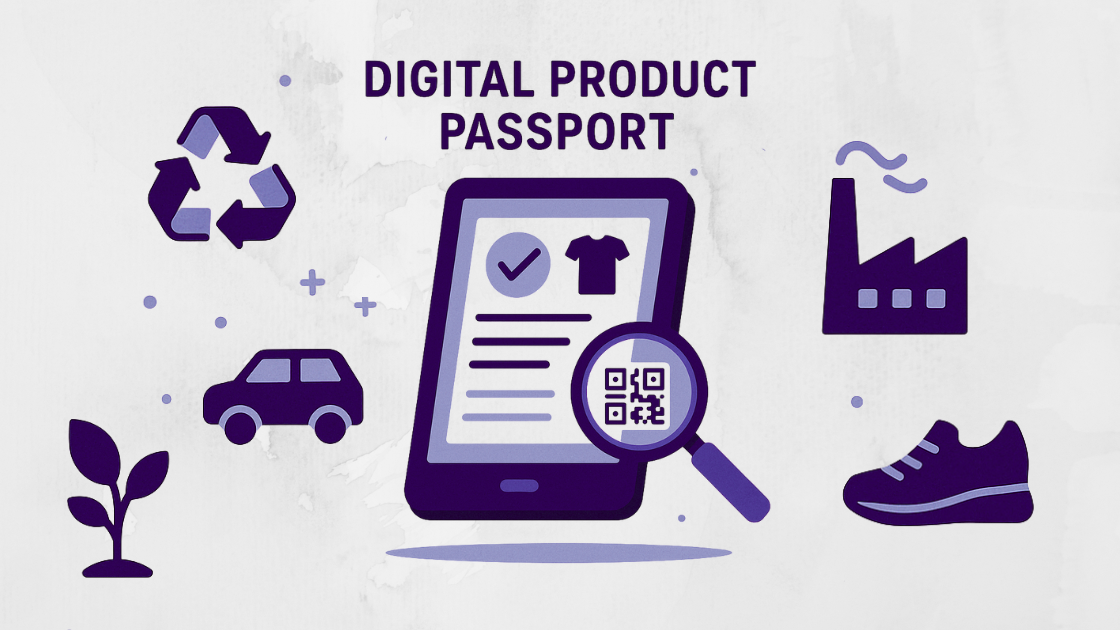Lead the Change: How Kultlab Uses Festivals as a Testing Ground for Change
Festivals are known for music, freedom and creativity. But behind the scenes, it’s about very different themes: water, energy, transport, food and waste. How do you organise all that in a way that’s not only practical, but also sustainable? Rob van Wegen, Sustainability Coordinator at Kultlab (known for festivals such as Wildeburg and Wilde Weide), demonstrates that festivals are the ideal setting for experimentation and learning.

Get the ball rolling
Rob compares the journey toward sustainability to pushing a massive round stone. Initially, it requires a significant amount of effort to get it moving. But once it starts rolling, it becomes easier. “It’s about daring to take that first step,” he says. “After that, things usually start to flow more naturally.”
For Rob, that movement started when he first encountered sustainability in his work as a producer. “It touched me. I suddenly felt: here I can really make a difference. It gave me extra purpose. At festivals, you can literally show thousands of people that things can be done differently. That idea still drives me.”
Festivals, he explains, are a unique testing ground. “Visitors step out of their daily routines. That’s when they are open to new experiences. A festival can be more than just entertainment; it can shift how people see the world.”
Water and travel: more innovative and sustainable logistics
A festival site is like a temporary small city. Thousands of people want to shower, use the toilets and move around. That requires a significant amount of water and transportation.
“Until recently, we pumped clean drinking water everywhere. But that’s not needed. For the toilets, we now often use surface or grey water. That’s better for the scarce drinking water supply and easier to organise,” Rob explains. This is always done in consultation with nature managers and after careful approval.
Visitor travel is another significant challenge, especially for a festival like Wildeburg, which is far from the nearest station. Kultlab doesn’t want to enforce strict rules but makes sustainable choices more attractive. Shuttle buses with luggage trailers save visitors the hassle of carrying luggage. People are encouraged to car-share.
“It’s cheaper and more fun and also more sustainable. We don’t want to lecture people but show that it can be easier and better.”
Waste as a resource
Anyone who’s ever been to a camping festival knows the sight of abandoned tents and chairs. Kultlab decided to turn this around. In collaboration with Decathlon, they launched the 'No Tent Left Behind' initiative, through which they collected more than 200 tents. Good ones were cleaned and resold in stores. Broken tent fabrics were given to Studio Haering, who turned them into bags.
“That’s how you turn a problem into an opportunity,” Rob says. “Visitors see that materials still have value, even if they look useless. You literally change the mindset: after use, material is not waste, but a new beginning.”
One step at a time
Becoming sustainable is not a straight path. Some pilots don’t work as planned.
“Sometimes I learn more from failure than from success,” Rob admits. “It shows where the resistance is and how to improve next time.”
He often uses the “stretch-stress model”: “In your comfort zone, you learn little. In your stretch zone, you’re challenged and make progress. But if you push too far, you hit the stress zone, and people drop out. The trick is to take steps that are exciting enough to learn, but small enough to take with you.”
Sustainability is teamwork
For Rob, sustainability always comes down to collaboration, not only with colleagues, but also with suppliers, partners and visitors. A good example was a partnership with Oxfam Novib, which raised awareness about global issues at a festival.
“It shows that sustainability is broader than CO₂. It’s also about fairness, awareness and connection. That makes it powerful and human.”
Afterwards, the collected deposit money was entirely donated to Oxfam Novib.
The lesson for small businesses
Rob sees a clear parallel with SMEs. “Entrepreneurs, like festivals, have limited resources and a lot of outside pressure. But that’s exactly where opportunities lie. You don’t have to do everything perfectly to do it well. Take a look at what you can already accomplish today, working together with your team and suppliers. Start small, learn from what works and dare to experiment. In the end, it’s about becoming future-proof step by step.”
Rob’s tip:
“Don’t wait until you have the perfect plan. Look at the step you can already take today. However small, it gets things moving. And once there’s movement, the ball keeps rolling more easily.”
Just like Kultlab uses festivals to experiment, learn and become more sustainable, you can measure and improve your company’s sustainability. Make your footprint visible, take steps forward and build a future-proof business.
Book a free demo and discover how you can shape a sustainable future for your business and the world around you.



